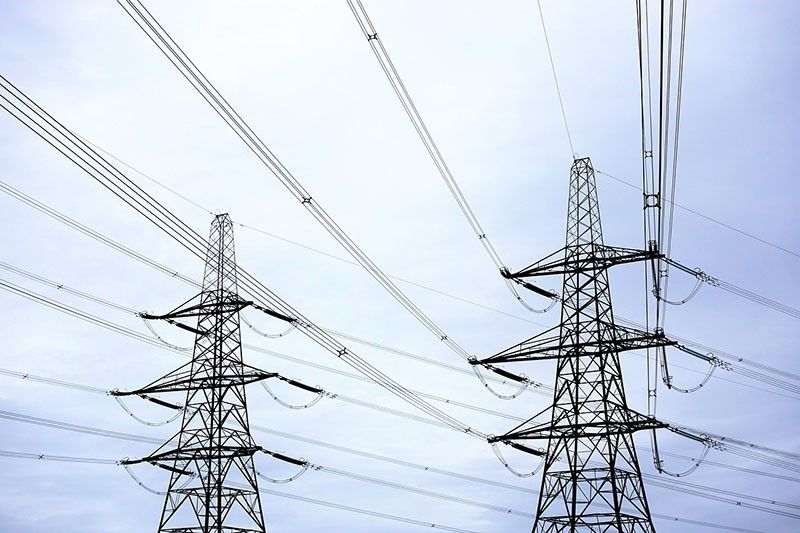Reforming the grid

In the vast and complex world of energy management, the National Grid Corp. of the Philippines (NGCP) plays a pivotal role in powering the nation. Yet, recent scrutiny reveals a disconnect between profit distributions and infrastructure investment that merits a closer examination, particularly in light of the urgent need for grid reliability and energy security.
Since its inception in 2009, the NGCP has amassed P286 billion in earnings, allocating a substantial portion—P208 billion—as dividends to shareholders. While rewarding investors is standard corporate practice, the Senate’s concern suggests a disproportionate focus on profits over the pressing requirements of the grid's expansion and modernization.
The NGCP's response, citing the use of retained earnings for dividends, does little to address the underlying issue: the prioritization of reinvestment in infrastructure over shareholder payouts, especially given the delay of 72 key projects.
The Senate’s apprehension is amplified by the NGCP’s practice of charging consumers for unfinished projects. This practice, spotlighted during a Senate hearing, underscores the need for a financial mechanism that better aligns the timing of consumer charges with project completions. Such a revision would serve dual purposes: protecting consumers from premature costs and incentivizing the NGCP to expedite project rollouts.
The regulatory landscape, as it stands, appears to have limited teeth. The Department of Energy (DOE) and the Energy Regulatory Commission (ERC) seem constrained by current statutes, with the DOE pointing to concession agreements that limit its ability to directly intervene. The ERC, facing a cap on penalties, can only impose a P50-million fine per infraction—a sum that may not effectively deter delays or non-compliance.
Indeed, the financial health of the NGCP is paramount to the grid's stability and growth. However, it is essential to balance this with the interests of the consumers and the national need for an up-to-date and secure energy infrastructure. Therefore, a reevaluation of the “pass-through” provisions and the interim maximum annual revenue structure is necessary to safeguard consumer interests without unduly hampering the NGCP's operational viability.
In the occasional of the Stratbase ADR Institute that I had the privilege of authoring with my colleague Mark Ezekiel G. Quinto, we gave the following recommendations to address the critical issues surrounding the Philippine energy grid:
First is to ensure the independence of regulatory agencies. This is crucial in maintaining an unbiased oversight of the energy sector and ensuring that decisions are made in the best interest of the public.
Next, the development of clear and specific standards and performance metrics for energy companies to follow. These standards will serve as a guideline for energy companies to ensure they are operating in a manner that is safe, efficient, and environmentally friendly.
To ensure these standards are being met, the must be regular auditing and reporting. This will allow for continuous monitoring of company operations and prompt identification of any potential issues or areas for improvement.
In order to deter non-compliance, we suggest the introduction of harsher penalties. This will serve as a strong deterrent for companies considering cutting corners or violating regulations.
To further promote accountability, compliance data should be publicly accessible to promote transparency. This will allow the public to be informed about the operations of energy companies and their adherence to regulations.
Recognizing the importance of collaboration, partnerships between regulatory agencies, industry stakeholders, and consumer groups should be encouraged. This will foster a cooperative environment where all parties can work together towards the common goal of a safe and efficient energy sector.
Finally, there is a need to invest in sustaining education and training to ensure that the industry and regulators are equipped with knowledge and skills to adapt to fast-evolving innovations.
The upgrading of the country’s transmission grid should be prioritized to achieve national energy security. Here the ERC should tighten oversight on the completion of these critical infrastructure projects which would hopefully strengthen the electricity value chain and prevent higher electricity costs for consumers.
Resolving technological issues and mitigating vulnerabilities is critical. The ERC should enlist neutral third-party technology firms for an objective scrutiny of vulnerabilities, potential threats, and gaps in the grid’s technological infrastructure.
Especially critical is a robust defense against possible cyberattacks that may cause system breakdowns. A proactive audit of the grid’s digital and communication systems, data protection measures, cybersecurity protocols, and overall technological architecture will expose potential weaknesses that must be addressed.
Moreover, amid geopolitical tensions and concerns of foreign influence in the NGCP, there is a heightened imperative for national security. An ownership structure that potentially affords proprietary access to a foreign entity raises more than eyebrows—it calls for a comprehensive national security audit of the power grid to ensure that the Philippines' sovereignty and security are not compromised.
Moving forward, the NGCP's commitment to investing P300 billion in grid improvements is a step in the right direction. However, juxtaposed with the delayed implementation of projects critical to the integration of renewable energy, this figure is not as reassuring as it might initially appear. As the country moves toward renewable energy sources, the speed and efficiency with which the NGCP operates will be crucial in determining the success of this transition.
The call by President Ferdinand Marcos Jr. for a performance review of the NGCP is timely. Beyond the financial implications, the delay in the review of renewable projects affects the entire energy sector's capability to adopt modern, sustainable, and more environmentally friendly practices.
In summary, while the NGCP's profitability is crucial to its shareholders and the financial markets, a recalibration of its priorities toward greater public accountability and infrastructure investment is imperative.
The government, for its part, must enhance regulatory mechanisms to ensure that the NGCP's actions align with national interests, including energy security, affordability, and reliability. Only then can the Philippines hope to achieve a balance between a profitable energy sector and one that serves the public interest with the unwavering reliability and integrity befitting a cornerstone of national infrastructure.
Terry Ridon is a non-resident fellow at think tank Stratbase ADR Institute and convenor at InfraWatch PH.
- Latest





























